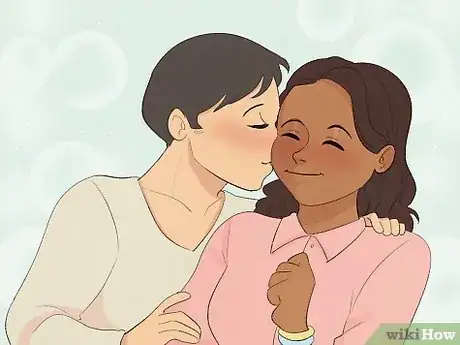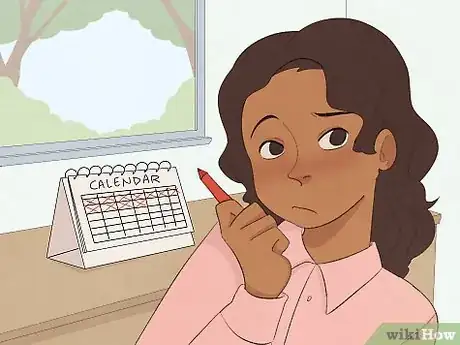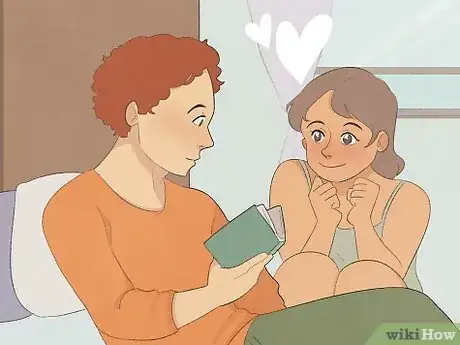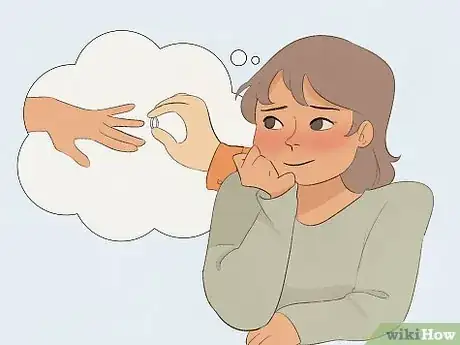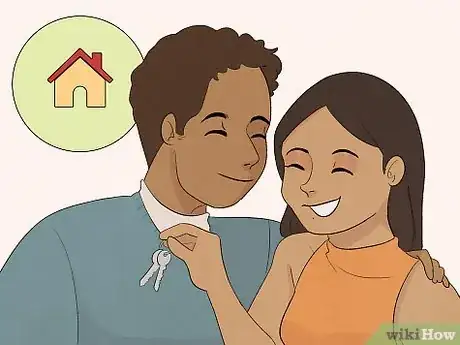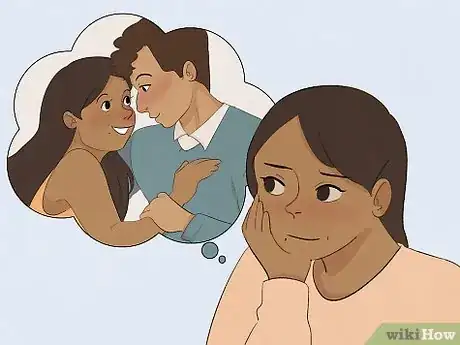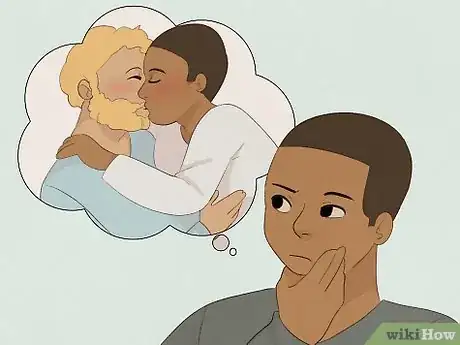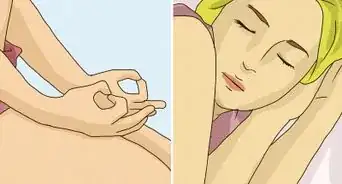This article was co-authored by Asa Don Brown, PhD, DNCCM, FAAETS and by wikiHow staff writer, Eric McClure. Dr. Asa Don Brown is a Clinical Psychologist with over 25 years of experience. He specializes in working with families, children, and couples, treating a variety of psychological disorders, trauma, and abuse. Dr. Brown has specialized in negotiation and profiling. He is also a prolific author having published three books and numerous articles in magazines, journals, and popular publications. Dr. Brown earned a BS in Theology and Religion with a minor in Marketing and an MS in Counseling with a specialization in Marriage and Family from The University of Great Falls. Furthermore, he received a PhD in Psychology with a specialization in Clinical Psychology from Capella University. He is also a candidate for a Masters of Liberal Arts through Harvard University. Dr. Brown is a Fellow of the American Academy of Experts in Traumatic Stress and a Diplomate for the National Center for Crisis Management and continues to serve a number of psychological and scientific boards.
There are 7 references cited in this article, which can be found at the bottom of the page.
This article has been viewed 2,617 times.
Wondering if the honeymoon phase is actually a thing? Are you in a new relationship and trying to figure out whether it’s true love or the novelty of something new? We’ll help you identify what you’re feeling and explain what you’re going through. In this article, we’ve compiled everything you could possibly need to know about the honeymoon phase. We’ll even cover what comes next!
Steps
How can you tell if it’s true love or the honeymoon phase?
-
1There’s no real way to know until after the honeymoon phase ends. It’s hard to know exactly how you feel when something is brand new. This is why so many relationships flame out after 3 to 6 months; you need to see your partner with clear eyes before you know how you truly feel. This isn’t to say that it can’t be love! It just that it may take time to figure it out for sure.[15]
- Taking an inventory early on and trying to objectively identify whether your partner has any red flags or not can help you figure out whether this person is right for you or not.
- Anticipating the end of the honeymoon period and discussing it together can help you two prepare for it.
-
2The more intense the honeymoon phase, the less likely a relationship will last. There is some evidence that the more extreme the passion is early on, the less likely it is that a couple stays together. This may have to do with how extreme and rapid the disillusionment is once the honeymoon period ends.[16]
- A realistic attitude and a commitment to treating your relationship like the work that it is can improve the odds that you two stick together in the long term.
Expert Q&A
-
QuestionWhy does the honeymoon phase of a relationship end?
 Asa Don Brown, PhD, DNCCM, FAAETSDr. Asa Don Brown is a Clinical Psychologist with over 25 years of experience. He specializes in working with families, children, and couples, treating a variety of psychological disorders, trauma, and abuse. Dr. Brown has specialized in negotiation and profiling. He is also a prolific author having published three books and numerous articles in magazines, journals, and popular publications. Dr. Brown earned a BS in Theology and Religion with a minor in Marketing and an MS in Counseling with a specialization in Marriage and Family from The University of Great Falls. Furthermore, he received a PhD in Psychology with a specialization in Clinical Psychology from Capella University. He is also a candidate for a Masters of Liberal Arts through Harvard University. Dr. Brown is a Fellow of the American Academy of Experts in Traumatic Stress and a Diplomate for the National Center for Crisis Management and continues to serve a number of psychological and scientific boards.
Asa Don Brown, PhD, DNCCM, FAAETSDr. Asa Don Brown is a Clinical Psychologist with over 25 years of experience. He specializes in working with families, children, and couples, treating a variety of psychological disorders, trauma, and abuse. Dr. Brown has specialized in negotiation and profiling. He is also a prolific author having published three books and numerous articles in magazines, journals, and popular publications. Dr. Brown earned a BS in Theology and Religion with a minor in Marketing and an MS in Counseling with a specialization in Marriage and Family from The University of Great Falls. Furthermore, he received a PhD in Psychology with a specialization in Clinical Psychology from Capella University. He is also a candidate for a Masters of Liberal Arts through Harvard University. Dr. Brown is a Fellow of the American Academy of Experts in Traumatic Stress and a Diplomate for the National Center for Crisis Management and continues to serve a number of psychological and scientific boards.
Clinical Psychologist The honeymoon phase begins to fizzle the moment the spark begins to fade. In the majority of relationships, the sheen on your relationship tarnishes and the newness wears off. As the relationship matures, you begin to experience a more comfortable, relaxed, and less performance based relationship. This can be a good thing!
The honeymoon phase begins to fizzle the moment the spark begins to fade. In the majority of relationships, the sheen on your relationship tarnishes and the newness wears off. As the relationship matures, you begin to experience a more comfortable, relaxed, and less performance based relationship. This can be a good thing!
References
- ↑ https://health.clevelandclinic.org/what-is-the-honeymoon-phase/
- ↑ https://health.clevelandclinic.org/what-is-the-honeymoon-phase/
- ↑ https://health.clevelandclinic.org/what-is-the-honeymoon-phase/
- ↑ https://www.psychologytoday.com/us/blog/get-some-headspace/201307/mindfulness-and-the-phases-relationship
- ↑ https://health.clevelandclinic.org/what-is-the-honeymoon-phase/
- ↑ https://www.scientificamerican.com/article/what-physiological-changes-can-explain-honeymoon-phase-relationship/
- ↑ https://www.scientificamerican.com/article/what-physiological-changes-can-explain-honeymoon-phase-relationship/
- ↑ https://www.psychologytoday.com/us/blog/get-some-headspace/201307/mindfulness-and-the-phases-relationship
- ↑ https://health.clevelandclinic.org/what-is-the-honeymoon-phase/
- ↑ https://health.clevelandclinic.org/what-is-the-honeymoon-phase/
- ↑ https://www.psychologytoday.com/us/blog/ambigamy/201409/making-relationships-last-past-the-honeymoon-period
- ↑ https://ohioline.osu.edu/factsheet/FLM-FS-2-01-R10
- ↑ https://www.scientificamerican.com/article/what-physiological-changes-can-explain-honeymoon-phase-relationship/
- ↑ https://www.psychologytoday.com/us/blog/get-some-headspace/201307/mindfulness-and-the-phases-relationship
- ↑ https://www.psychologytoday.com/us/blog/ambigamy/201409/making-relationships-last-past-the-honeymoon-period
- ↑ https://pubmed.ncbi.nlm.nih.gov/24643282/
